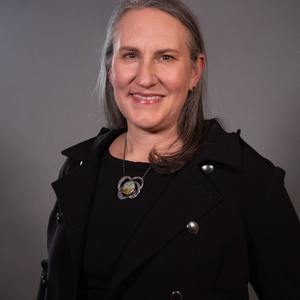Mission/Pledge
At Eating Recovery Center and Pathlight Mood & Anxiety Center, our teams are deeply committed to creating a size inclusive healthcare environment. We believe that all bodies are deserving of respect and quality healthcare, and we are committed to fighting weight stigma. Therefore, we ensure that our clinicians and staff are compassionately and professionally trained to honor and support our patients wherever they are on their journey with recovery and their relationship to their body. Here at ERC Pathlight, we strive to provide all individuals with accessible, competent, and individualized care without discriminating based on body shape, weight or size.
We acknowledge that we have work to do to become more inclusive in our facilities and pledge to continue working to create spaces that are inclusive and accessible for all bodies within our treatment facilities. In addition, we are committed to training professionals and community members regarding the harmful effects of weight stigma in our society, and in particular our healthcare system. We understand that research surrounding eating disorders is limiting with respect to size diversity; we are committed to learning from those with lived experience to inform and evolve our practice. By raising awareness and educating ourselves and others on the harm caused by engaging in anti-fat bias, we hope to help create more inclusive healthcare, where all bodies feel safe and can receive respectful care.


Why Is Weight Inclusive Care Important?
Weight stigma is deeply entrenched in our society and healthcare system, it persists relentlessly, and it takes a detrimental toll on the physical and mental well-being of individuals across the size spectrum. For those living in larger bodies, the scale and impact of adverse health implications from weight bias is not fully known, but can include (and are not limited to):
- Lack of trust with providers
- Avoiding healthcare appointments
- Inadequate care for health conditions
- Low self-esteem and depression
- Health concerns being dismissed and blamed on body size
- Overlooked diagnoses, including eating disorders
Continuing to overlook or even flat-out ignore the importance of size inclusivity further perpetuates the thin ideal we see around us and can lead to health disparities and psychological distress. Here at ERC Pathlight we are taking a stand within the healthcare setting and creating an environment that treats all bodies with the care they deserve, which has the power to transform the lives of many. Providing medical care free of weight bias will not only improve the patient/provider relationship, but also, improve the accuracy of eating disorder diagnosis and allow for life saving interventions.
FAQ and Helpful Statistics
ERC Pathlight believes that the Body Mass Index (BMI) is not a good indicator of health and should generally not be relied upon when assessing an individual’s overall health or risk of disease development and progression.
-
What is weight stigma?
Weight stigma refers to an individual or group of individuals being discriminated against for having a larger body. Weight stigma occurs both directly and indirectly all around us in our daily lives.
-
What is body diversity?
Body diversity refers to the acknowledgement that all bodies are inherently different. Diversity in the human body can refer to weight, shape, height, and skin color – just to name a few.
-
What is body neutrality?
Body neutrality focuses on accepting one's body the way it is and emphasizing the body giving us inherent abilities such as life, breath, even movement. Body neutrality is neither positive nor negative. Body neutrality differs from body positivity in that it does not place focus on moving towards having positive feelings about one's body shape/size/abilities. We acknowledge that in a world in which anti-fat bias, racism, anti-trans bias, and other forms of body oppression exist, weight neutrality may not always be possible.
-
What is anti-fat bias
Anti-fat bias refers to the implicit and explicit bias placed on fat bodies. These biases within the healthcare setting may be present in several ways: lack of appropriate seating options, narrow patient beds, small blood pressure cuffs, assumptions regarding work ethic, movement habits and dietary choices, to name a few.
-
How can I talk about bodies in an affirming and inclusive way?
The term fat has been reclaimed by many activists to be used as a descriptor for their body size free of shame, guilt, or moral value. It is important to remember that not all individuals are comfortable using this word to describe their bodies and they may still view it negatively. When speaking with others, it is important to be respectful of how they prefer to describe their bodies. When in doubt, ask!
-
What is the Body Mass Index (BMI)?
BMI is a simple fraction that describes a person's weight to height ratio; it is a person's weight in kilograms divided by their height is meters squared. When it was conceptualized nearly 200 years ago, it was for the purposes of understanding large groups of humans, not for estimating the needs or the circumstances of individual people. In use today, BMI is an outdated metric that can advance biased assumptions about a person's body fat, and by extension, their overall health. BMI is a simple math equation that does not factor in a person's distribution of body fat, ethnicity, gender, ethnicity, age, vital signs, lab values or bone and muscle mass.
-
How does the BMI chart perpetuate racism within our healthcare system?
The BMI scale was originally created nearly 200 years ago by a mathematician based off the typical frame/stature of Eastern European males. It does not consider the differences in heathy, strong body structures within other ethnicities and genders. Countless studies have found that this scale is problematic when estimating health risks in diverse populations.
Source: https://www.ncbi.nlm.nih.gov/pmc/articles/PMC2873180/
-
How does weight bias negatively impact the provider/patient relationship?
Weight bias is on the rise, with one study showing a 66% increase within the last decade in the USA. It has been shown that individuals in a larger body have a higher rate of delaying visits with their primary care providers in an effort to avoid being stigmatized based on their body size. Additional studies reveal some medical providers spend less time assessing and treating individuals based on their body size. Furthermore, weight bias within our healthcare system exists both implicitly and explicitly. Both result in a decrease in the quality of care provided to individuals in larger bodies.
Source: https://www.ncbi.nlm.nih.gov/pmc/articles/PMC6650789/
Source: https://www.ncbi.nlm.nih.gov/pmc/articles/PMC6311448/
Source: https://publications.aap.org/pediatrics/article/140/6/e20173034/38277/Stigma-Experienced-by-Children-and-Adolescents
Weight Stigma Resources
We are committed to providing safe, culturally aware, and evidence-based information to all. Here we provide healthcare professionals and community members with information on the harm of anti-fat bias, especially within the treatment of eating disorders. We are here to help you learn to advocate for your healthcare needs and support you during the process.
-
Support Groups
-
Size Inclusive Resources & Talking Points
-
Recommended Reading
- The Body Is Not An Apology: The Power of Radical Self Love BY: Sonya Renee Taylor
- Fearing the Black Body: The Racial Origin of Fat Phobia BY: Sabrina Strings
- Reclaiming Body Trust- A Path to Healing & Body Liberation BY: Dana Sturtevant and Hilary Kinavey
- Belly of the Beast: The Politics of Anti-Fatness and Anti- Blackness BY: Da’Shaun L. Harrison
- What We Don’t Talk About When We Talk About Fat BY: Aubrey Gordon
- The Wellness Trap: Break Free from Diet Culture, Disinformation and Dubious Diagnosis BY: Christy Harrison
- Fat Talk By: Virginia Sole-Smith
-
On-Demand Events
Continuing Education
We are aware of the weight bias within the healthcare system and the ways it results in harm. When placing focus on weight as a primary indicator of health, medical providers can often overlook eating disorders altogether or provide inadequate treatment of eating disorders and can even misdiagnose various medical conditions. We are committed to continually learning and improving our own understanding of how to serve and advocate for individuals experiencing anti-fat bias. ERC Pathlight provides weight inclusive care education with a tailored learning path for all clinical providers, including our own clinical teams.
Use Code WeightStigma when registering for access.

Hide Last Child Layout Div


